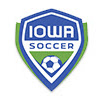Between 2018 and 2022, the State of Iowa experienced a 46% decline in certified soccer referees, leading to numerous youth and adult matches lacking adequate officiating. Recognizing the critical role that referees play in ensuring fair and equitable competition, Iowa Soccer Association launched its Referee Development Program (RDP) in May 2023. This initiative represents a substantial investment of more than a quarter million dollars over three years, aiming to recruit, retain, train and support referees across the state.
The decline in referees is not unique to Iowa. Nationwide, youth sports programs are grappling with a significant shortage of officials. Surveys reveal that over 70% of referees leave the role due to verbal abuse and harassment from parents, coaches and players, leading to significant challenges in referee recruitment and retention.
“RDP focuses not just on individual skill but on creating a culture where we grow together with our clubs, united as a vital part of the Iowa soccer community,” said Hidajet Tica, Iowa Soccer Referee & Sportsmanship Director.
The RDP offers Iowa Soccer members exclusive access to resources that promote “Respect 4 All,” emphasizing the collective responsibility of coaches, players, referees and supporters in fostering a positive game environment. By addressing participant behavior and enhancing referee training, the program aspires to elevate the overall soccer experience in Iowa.
Through targeted programming that addresses participant behavior during games, along with a strategic partnership with the Iowa Referee Committee (IRC), the RDP is focused on recruiting, retaining, training and supporting referees. This collaborative effort aims to increase the number of certified soccer officials in Iowa while enhancing the overall gameday experience for players, coaches and fans alike.
“Referee development programs are the cornerstone of fair play in sports,” said Rob Sorey, Iowa State Referee Administrator. “By investing in the training and growth of officials, we not only ensure the integrity of the game but also cultivate the next generation of leaders who uphold the values of fairness, respect and accountability.”
The impact of the RDP has already been evident, with a number of clubs actively participating in the program. These collaborations are pivotal in rebuilding the referee community and ensuring that matches are conducted with integrity and professionalism.
“Des Moines Soccer Club has been participating in the Referee Development Program (RDP) since its inception,” said Steve Wilke-Shapiro, Director of Referees at Des Moines Soccer Club. “A major benefit we have experienced is that our program now provides a more professional experience for our families at very little cost. It is great to see the 12 to 14 year old aspiring referees out on the fields (dressed in their RDP shirts) engaging with kids, teaching soccer, and of course building their own skill set.”
By taking a comprehensive approach, the RDP not only addresses the immediate shortage of referees but also seeks to create a sustainable community for officials. The initiative directly tackles key factors contributing to the shortage, such as toxic sideline behavior, by promoting a culture of respect and accountability among all stakeholders. Through investment in education, support and long-term solutions, Iowa Soccer Association is focused on taking significant steps to secure the future of soccer in the state.
“The RDP was designed with two basic principles to increase the number of referees,” said Dan Cataldi, Chief Executive Officer of the Iowa Soccer Association. “First, eliminate barriers by making it easier to get started. Second, it aims to improve the experience for new referees by making what they learn in training more relevant to what they experience and by creating a more positive environment at the field.”
The Referee Development Program (RDP) was established through the Innovate to Grow Fund, which was introduced by the U.S. Soccer Federation in pursuit of its mission to make soccer the preeminent sport in the United States. The initiative seeks to develop underserved soccer communities, with an overall focus on building the sport at the grassroots level.








